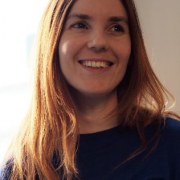21st century skills: how to introduce them in your science centre
Find this session's presentations here.
As our society is quickly changing into a knowledge society, new skills are needed to be able to function successfully in the 21st century. As automation increases and robots are on the verge of taking over several of our jobs there will be a decreasing need for people doing routine work. The youngsters of today will probably have jobs that we never heard of today. According to several studies the competencies needed in future society will include: computational skills, social and cultural skills, creativity, critical thinking and problem solving - together they are usually referred to as the 21st century skills.
This round table session will explore how we can integrate the learning and practicing of these skills in the science centre: in our exhibitions as well as in our programmes. After a short introduction participants will discuss in small groups what they are already doing to train youngsters in 21st century skills and which other steps we can take to help them prepare for the future.
Facilitator
Curator of interactive experiences
Session speakers
VP, Exhibits, Digital, and Evaluation
Science World British Columbia has recently created two new exhibitions focused on 21st century skills. An early learner exhibition for birth to 5 years of age, and a Creativity and Innovation exhibition. I will draw on examples of how we prototyped and developed interactives and themes to stimulate discussion of new ways of developing critical thinking and open ended exploration skills in our visitors.
Learning Officer and Trainer
Naturalis Biodiversity Center
Our educational mission is to promote scientific literacy and love and respect for nature. We stimulate problem solving, creativity, reasoning, critical thinking and higher order thinking in activities for both family and school visitors. We do this not only within the museum walls, but also in an online environment, which extends the visit and gives us more opportunities to deepen understanding.
Many critical challenges we all face—issues like energy crises, international conflict, ecosystem collapse, and climate change—revolve around social perceptions, expectations, and interactions. Critical thinking skills are among the most important 21st century skills that will be needed to productively discuss and solve these problems. It's important for science centers to provide ways for people to explore these issues in fun, non-threatening, and interactive ways. The Exploratorium worked with social scientists to develop an exhibition titled Science of Sharing that encourages those interactions. Science of Sharing lets you reflect on the human element at the heart of some of the world’s most pressing problems. I will share the process by which we created this as an example of collaboration and branching out into areas not typically included in science centers.
When le Vaisseau opened 12 years ago, our mission was to educate children in science and technology and increase the number of scientific vocations.
In 2013, we opened an exhibition about mathematics and logical thinking. In 2016 we opened , "Lab'oh", a 400 sqm space, were we focus on creativity. We believe that skills like creativity can be learned (or lost). The mission of le Vaisseau has evolved in the past years, we now see ourselves as a place for children's development.





